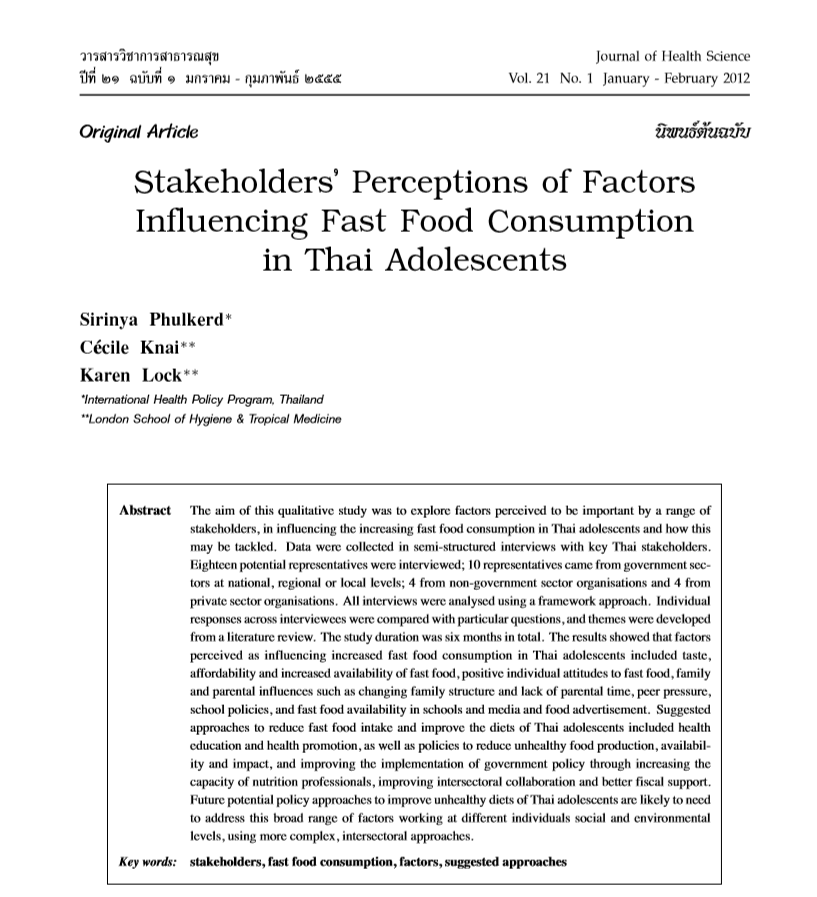Title: Stakeholders' Perceptions of Factors Influencing Fast Food Consumption in Thai Adolescents
Authors: Sirinya Phulkerd, Cécile Knai, Karen Lock
Issue Date: January - February 2012
Publisher: Journal of Health Science
Abstract
The aim of this qualitative study was to explore factors perceived to be important by a range of stakeholders, in influencing the increasing fast food consumption in Thai adolescents and how this may be tackled. Data were collected in semi-structured interviews with key Thai stakeholders.
Eighteen potential representatives were interviewed; 10 representatives came from government sectors at national, regional or local levels; 4 from non-government sector organisations and 4 from private sector organisations. All interviews were analysed using a framework approach. Individual responses across interviewees were compared with particular questions, and themes were developed from a literature review. The study duration was six months in total. The results showed that factors perceived as influencing increased fast food consumption in Thai adolescents included taste, affordability and increased availability of fast food, positive individual attitudes to fast food, family and parental influences such as changing family structure and lack of parental time, peer pressure, school policies, and fast food availability in schools and media and food advertisement. Suggested
approaches to reduce fast food intake and improve the diets of Thai adolescents included health education and health promotion, as well as policies to reduce unhealthy food production, availability and impact, and improving the implementation of government policy through increasing the capacity of nutrition professionals, improving intersectoral collaboration and better fiscal support. Future potential policy approaches to improve unhealthy diets of Thai adolescents are likely to need to address this broad range of factors working at different individuals social and environmental levels, using more complex, intersectoral approaches.
Related Works:
Declaration of nutrition information on and nutritional quality of Thai ready-to-eat packaged food p...
A Review of methods and tools to assess the implementation of government policies to create healthy ...
Level of implementation of best practice policies for creating healthy food environments
Unhealthy food and non-alcoholic beverage advertising on children's, youth and family free-to-air an...
Corporate political activity of major food companies in Thailand: an assessment and policy recommend...
Childhood stunting in Thailand: when prolonged breastfeeding interacts with household poverty

